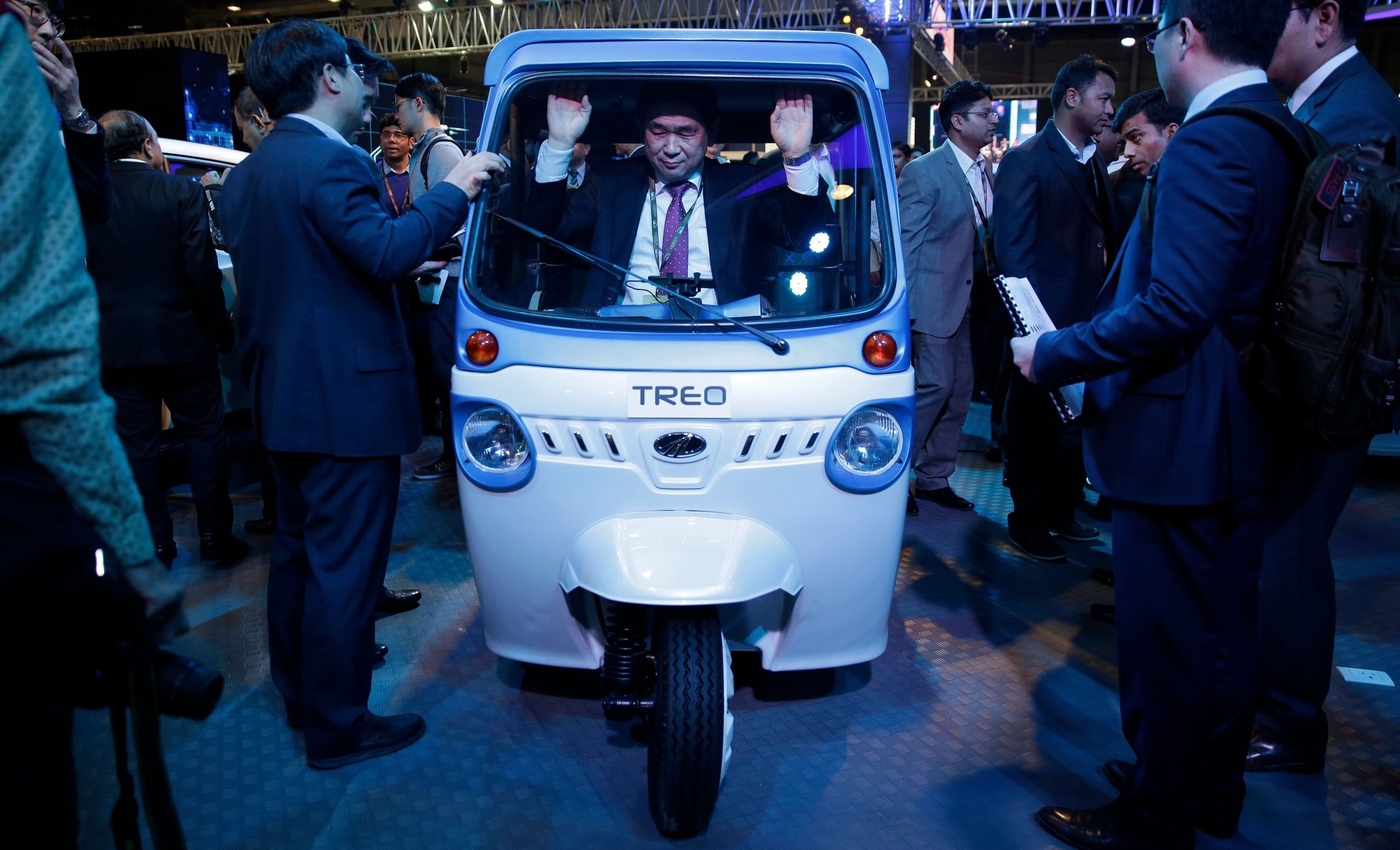An Indian electric vehicle pioneer is betting big on e-rickshaws
It’s difficult to make a sales pitch for an electric personal vehicle (EV) in India. So Mahindra Electric, one of the early movers in India’s EV space, is placing its bets on electric three-wheelers.


It’s difficult to make a sales pitch for an electric personal vehicle (EV) in India. So Mahindra Electric, one of the early movers in India’s EV space, is placing its bets on electric three-wheelers.
On Dec.12, the company said that by March 2019 it will supply 1,000 e-rickshaws to SmartE, a Gurugram-based electric three-wheeler aggregator.
Three-wheelers have always been a popular mode of public transport in India, and Mahindra is the first major auto player to enter the electric three-wheeler segment. Last month, Mahindra Electric, a division of the Indian retail-to-automobile conglomerate Mahindra & Mahindra, launched two models of e-rickshaws—the Treo and Treo Yaari.
“The sale of personal vehicles is pretty low, particularly four-wheelers,” said Mahesh Babu, CEO of Mahindra Electric. About 2,000 of the company’s electric four-wheelers, which include brands like e2oPlus and eVerito, run as cabs, he said. He added that most of the sales in the last two years have been to commercial fleet operators like Ola, Uber, and car rental company Zoomcar.
The dearth of EVs in the personal vehicle space has been a major pain point for car makers. “At this point in the EV technology curve (India lacks a robust public infrastructure of charging stations), it does not make sense for the common man to buy an electric car,” said Deepesh Rathore, director at the automotive consultancy Emerging Markets Automotive Advisors. “A traditional car is better in every aspect: better speed, more choice for customers, and no range anxiety (a driver’s fear of the battery draining out before reaching a charging point).”
The market for electric three-wheelers, though, is much bigger. India has about 1.5 million e-rickshaws, slightly more than China’s entire electric passenger car fleet of 1.35 million. The number of three-wheeler EVs sold in the country is over 700 times that of four-wheeler EVs.
Finding synergies
The Mahindra-SmartE deal bodes well for both companies.
Launched in 2014, SmartE already runs a fleet of about 1,000 e-rickshaws in New Delhi and the regions around the national capital, its CEO Goldie Srivastava said, while announcing the deal. Customers can book shared rides on its app for up to six kilometres.
Under another partnership with the Delhi Metro Rail Corporation (DMRC), SmartE currently deploys its vehicles at a few of the city’s metro stations, aiding last mile-connectivity. Its new Mahindra three-wheelers will help expand the company’s presence at more metro stations, Srivastava said.
“In India, the narrative on mobility gets restricted to cars,” Srivastava had recently told Quartz. “It’s in the public transport system that electric mobility revolution will take place in India. Cars will happen much later on.”